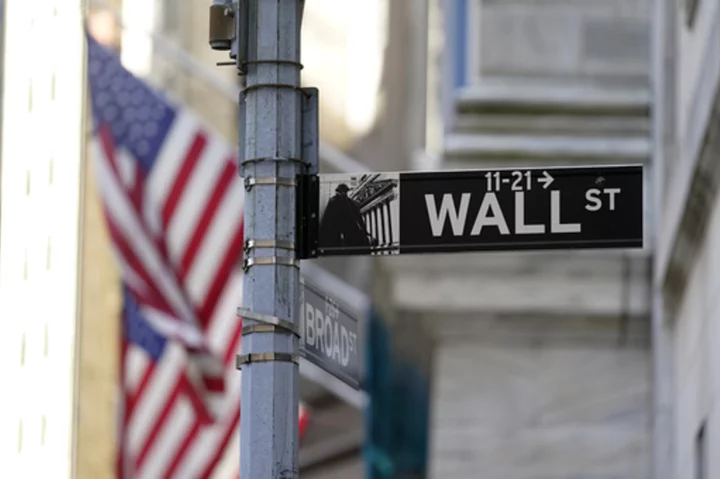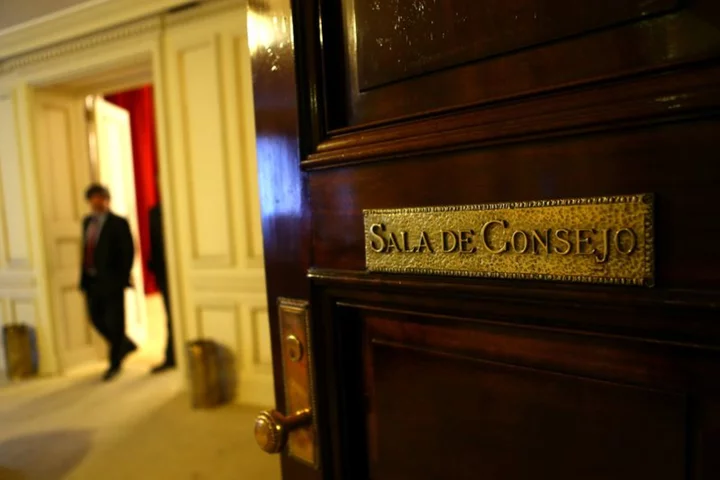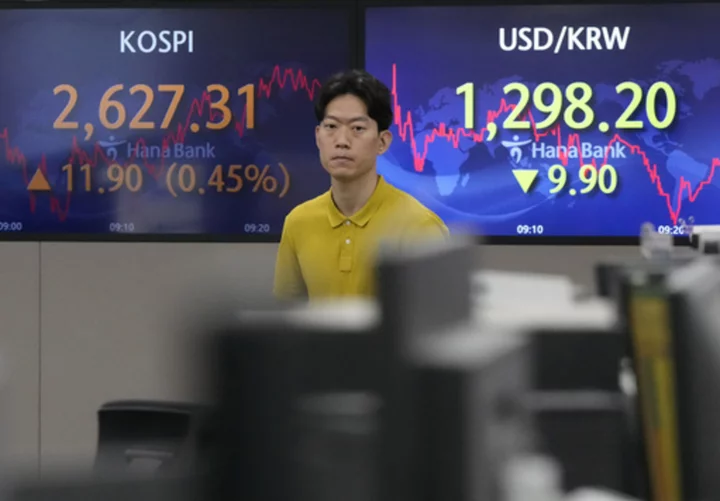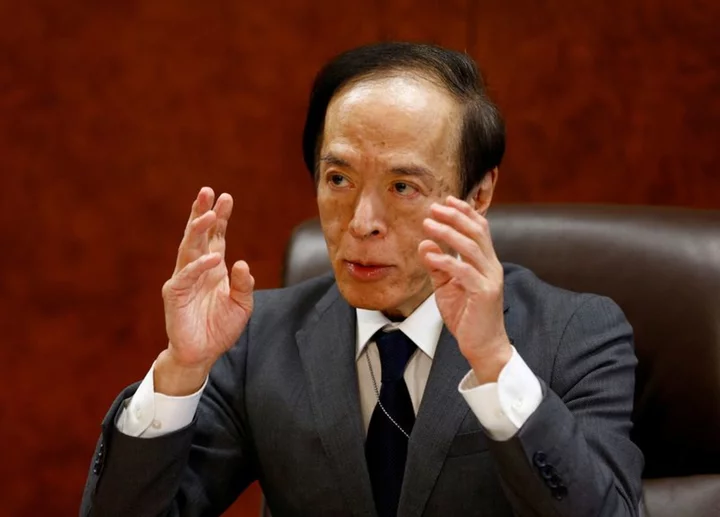Wall Street turned lower early Tuesday as pressure from rising bond yields continued to undercut stocks.
Futures for the S&P 500 fell 0.5% before the bell Tuesday, while the Dow Jones industrials dipped 0.4%.
After a sizzling first half of 2023, stocks have shed about 40% of their gains since the end of July amid growing acceptance that interest rates will remain elevated for longer than previously thought as the Federal Reserve tries to trim inflation to its 2% target.
That in turn has pushed Treasury yields to their highest levels in more than 16 years.
The yield on the 10-year Treasury continued its ascent early Tuesday, climbing to 4.74% from 4.69% late Monday. It's near its highest level since 2007. High yields send investors toward bonds that are paying much more than in the past, which pulls dollars away from stocks and undercuts their prices.
The yield on the 2-year Treasury inched up to 5.12% from 5.11% late Monday.
Any relief rally from a compromise spending bill approved by Congress over the weekend, which has staved off a U.S. government shutdown for another few weeks, appeared muted under pressure from heavy selling of bonds, which pushed yields higher.
“So, investors were on the fence, carefully considering the relationship between economic growth and interest rates and what actions the Federal Reserve might take in response to these factors,” Stephen Innes of SPI Asset Management said in a commentary.
High interest rates, designed to slow the overall economy, also make borrowing more expensive for all kinds of companies, which can pressure their profits.
The overall U.S. economy has so far been holding up, defying predictions that it would have fallen into a recession by now.
In corporate news, drugmaker Eli Lilly said it was buying Point Biopharma, which develops cancer-fighting treatments called radiogilands. Eli Lilly is paying $1.4 billion for Point, or $12.50 per share. Point shares jumped close to 85% before the bell.
In Europe at midday, Germany's DAX and the CAC 40 in Paris each gave up 0.8%. Britain's FTSE 100 slipped 0.2%.
Hong Kong’s Hang Seng sank 2.7% to 17,331.22 as investors unloaded property shares. However, China Evergrande jumped 28% after resuming trading Tuesday. Its shares were suspended last week as the troubled real estate developer announced that its chairman was under investigation. Earlier in the session its shares soared more than 60%.
Markets in mainland China and South Korea remained closed for holidays.
Tokyo's Nikkei 225 index fell 1.6% to 31,237.94, while Australia's S&P/ASX 200 skidded 1.3% to 6,943.40. India's Sensex declined 0.4% to 65,545.88.
Bangkok's SET was down 1.4% and Taiwan's Taiex fell 0.6%.
U.S. benchmark crude oil lost 41 cents to $88.41 per barrel in electronic trading on the New York Mercantile Exchange.
Prices have pulled back after charging higher from $70 in the summer. A barrel of U.S. crude fell $1.97 on Monday to settle at $88.82.
Brent crude, the international standard, fell 54 cents to $90.17 per barrel. On Monday, Brent lost $1.49 to settle at $90.71 a barrel.
In currency dealings Tuesday, the dollar rose to 149.93 Japanese yen from 149.86 yen. The euro fell to $1.0474 from $1.0480.
The dollar has gained in value against many other currencies as U.S. interest rates have risen faster than those in many other countries. Higher interest rates can mean higher yields for investments.
On Monday, the S&P 500 ended little changed and the Dow Jones Industrial Average slipped 0.2%. The Nasdaq composite rose 0.7%.
——









